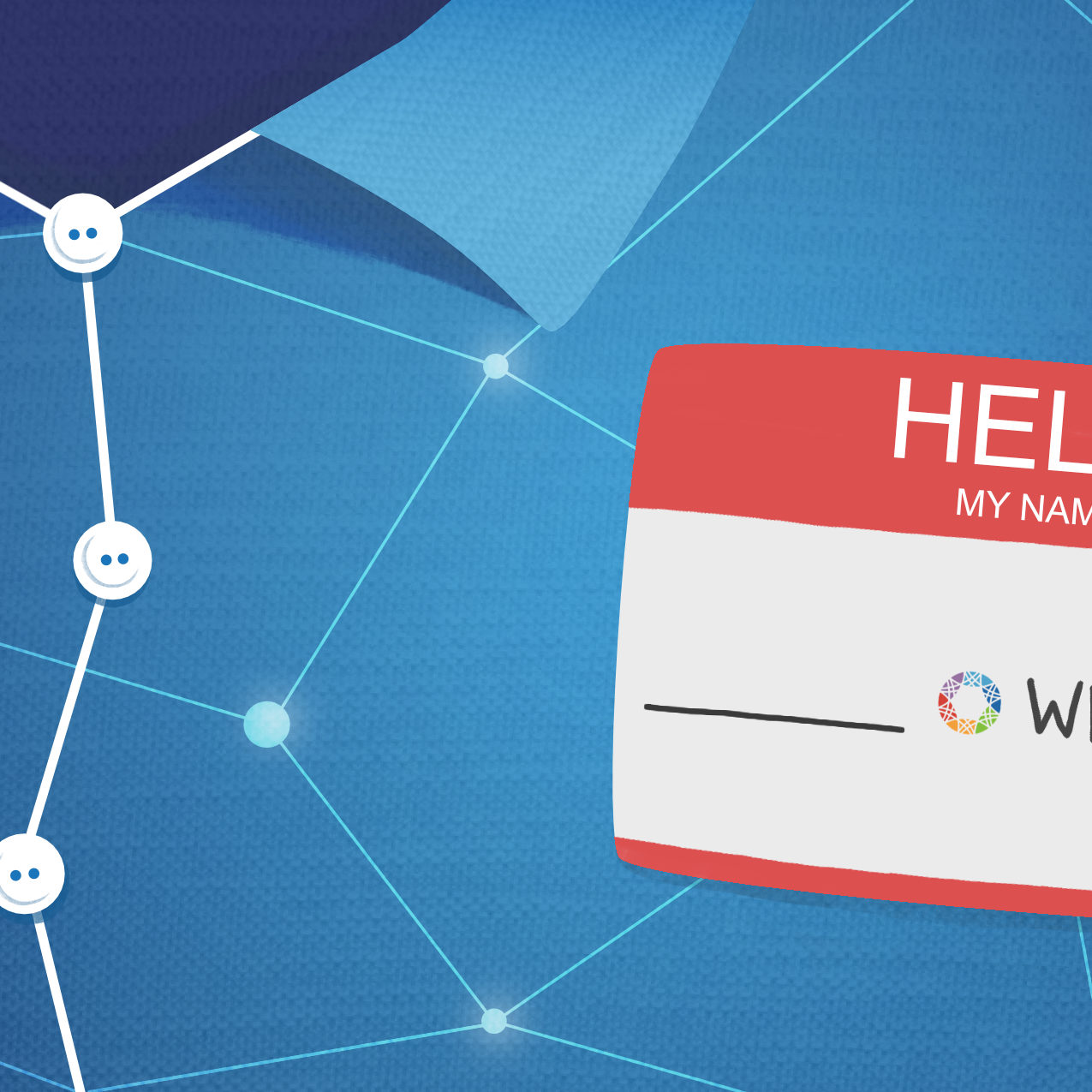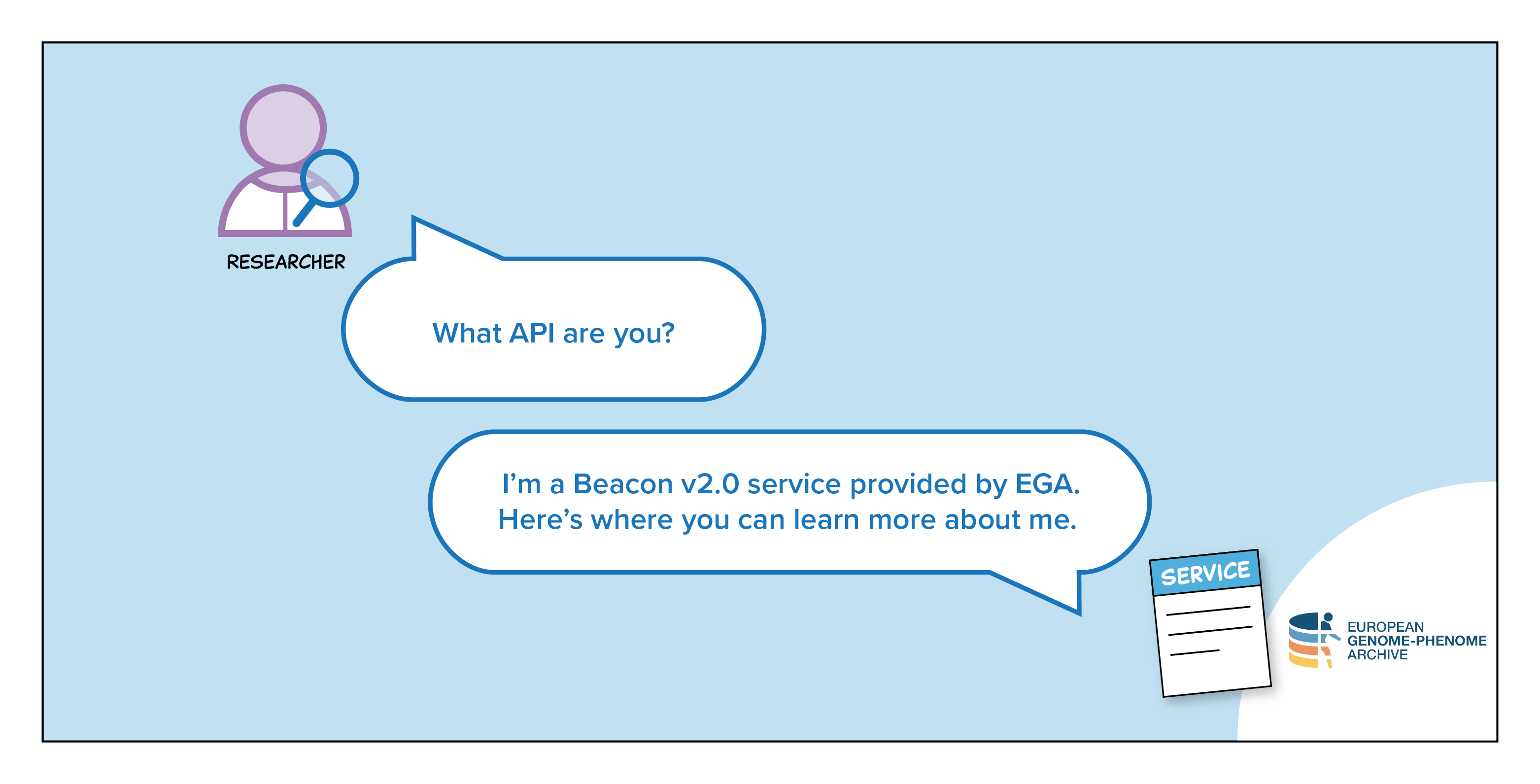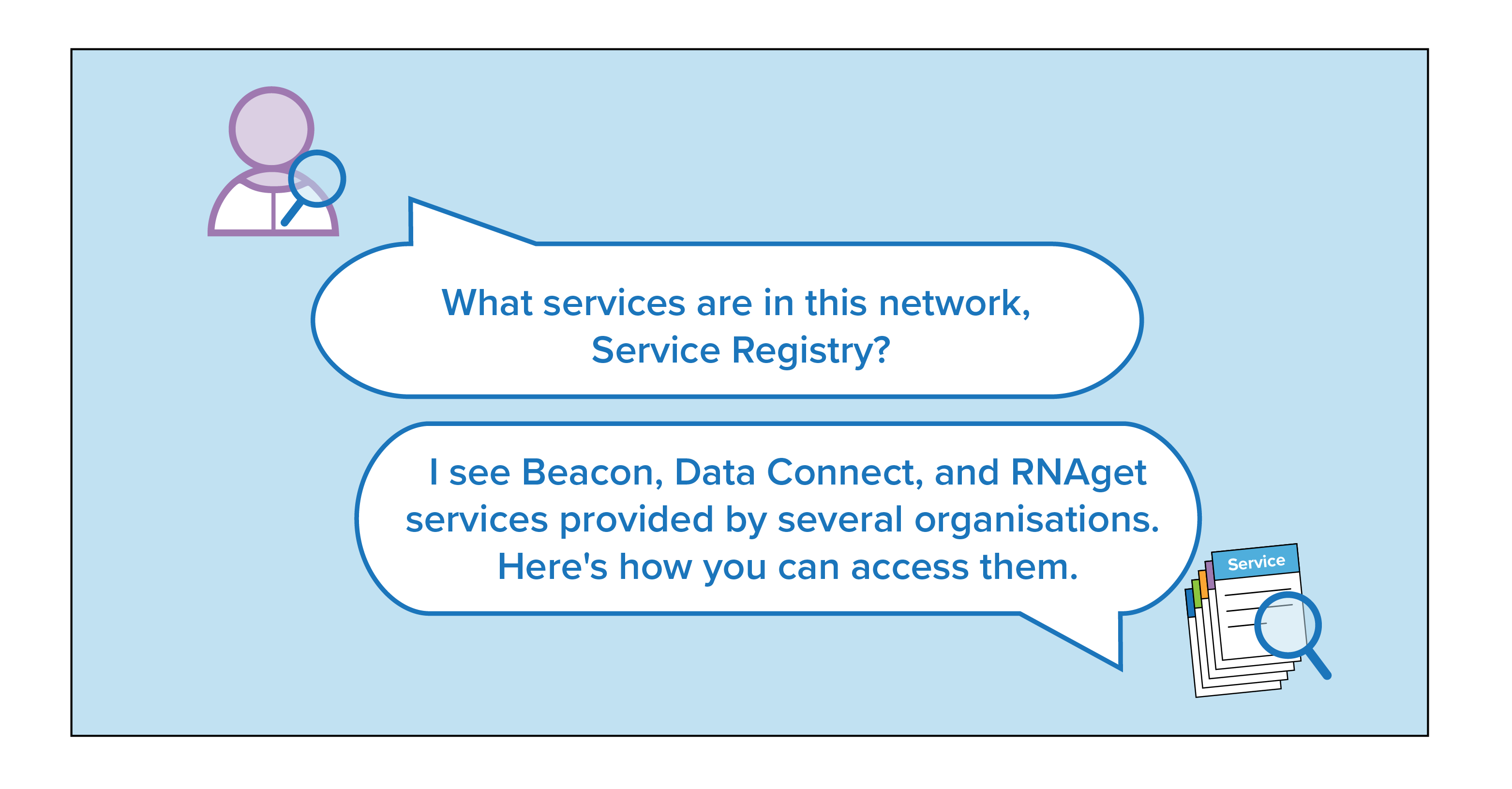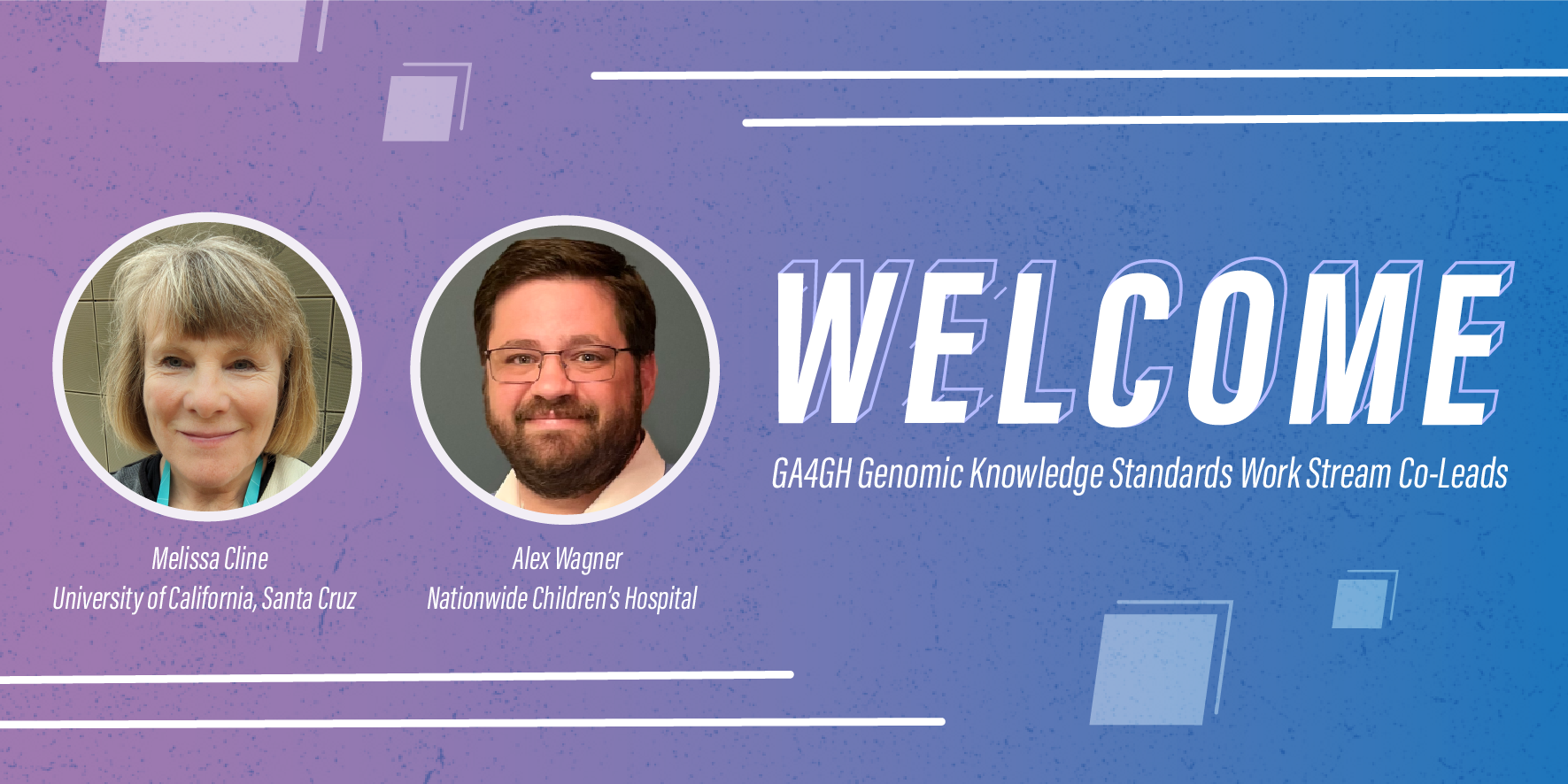About us
Learn how GA4GH helps expand responsible genomic data use to benefit human health.
Learn how GA4GH helps expand responsible genomic data use to benefit human health.
Our Strategic Road Map defines strategies, standards, and policy frameworks to support responsible global use of genomic and related health data.
Discover how a meeting of 50 leaders in genomics and medicine led to an alliance uniting more than 5,000 individuals and organisations to benefit human health.
GA4GH Inc. is a not-for-profit organisation that supports the global GA4GH community.
The GA4GH Council, consisting of the Executive Committee, Strategic Leadership Committee, and Product Steering Committee, guides our collaborative, globe-spanning alliance.
The Funders Forum brings together organisations that offer both financial support and strategic guidance.
The EDI Advisory Group responds to issues raised in the GA4GH community, finding equitable, inclusive ways to build products that benefit diverse groups.
Distributed across a number of Host Institutions, our staff team supports the mission and operations of GA4GH.
Curious who we are? Meet the people and organisations across six continents who make up GA4GH.
More than 500 organisations connected to genomics — in healthcare, research, patient advocacy, industry, and beyond — have signed onto the mission and vision of GA4GH as Organisational Members.
These core Organisational Members are genomic data initiatives that have committed resources to guide GA4GH work and pilot our products.
This subset of Organisational Members whose networks or infrastructure align with GA4GH priorities has made a long-term commitment to engaging with our community.
Local and national organisations assign experts to spend at least 30% of their time building GA4GH products.
Anyone working in genomics and related fields is invited to participate in our inclusive community by creating and using new products.
Wondering what GA4GH does? Learn how we find and overcome challenges to expanding responsible genomic data use for the benefit of human health.
Study Groups define needs. Participants survey the landscape of the genomics and health community and determine whether GA4GH can help.
Work Streams create products. Community members join together to develop technical standards, policy frameworks, and policy tools that overcome hurdles to international genomic data use.
GIF solves problems. Organisations in the forum pilot GA4GH products in real-world situations. Along the way, they troubleshoot products, suggest updates, and flag additional needs.
NIF finds challenges and opportunities in genomics at a global scale. National programmes meet to share best practices, avoid incompatabilities, and help translate genomics into benefits for human health.
Communities of Interest find challenges and opportunities in areas such as rare disease, cancer, and infectious disease. Participants pinpoint real-world problems that would benefit from broad data use.
Find out what’s happening with up to the minute meeting schedules for the GA4GH community.
See all our products — always free and open-source. Do you work on cloud genomics, data discovery, user access, data security or regulatory policy and ethics? Need to represent genomic, phenotypic, or clinical data? We’ve got a solution for you.
All GA4GH standards, frameworks, and tools follow the Product Development and Approval Process before being officially adopted.
Learn how other organisations have implemented GA4GH products to solve real-world problems.
Help us transform the future of genomic data use! See how GA4GH can benefit you — whether you’re using our products, writing our standards, subscribing to a newsletter, or more.
Help create new global standards and frameworks for responsible genomic data use.
Align your organisation with the GA4GH mission and vision.
Want to advance both your career and responsible genomic data sharing at the same time? See our open leadership opportunities.
Join our international team and help us advance genomic data use for the benefit of human health.
Share your thoughts on all GA4GH products currently open for public comment.
Solve real problems by aligning your organisation with the world’s genomics standards. We offer software dvelopers both customisable and out-of-the-box solutions to help you get started.
Learn more about upcoming GA4GH events. See reports and recordings from our past events.
Speak directly to the global genomics and health community while supporting GA4GH strategy.
Be the first to hear about the latest GA4GH products, upcoming meetings, new initiatives, and more.
Questions? We would love to hear from you.
Read news, stories, and insights from the forefront of genomic and clinical data use.
Attend an upcoming GA4GH event, or view meeting reports from past events.
See new projects, updates, and calls for support from the Work Streams.
Read academic papers coauthored by GA4GH contributors.
Listen to our podcast OmicsXchange, featuring discussions from leaders in the world of genomics, health, and data sharing.
Check out our videos, then subscribe to our YouTube channel for more content.
View the latest GA4GH updates, Genomics and Health News, Implementation Notes, GDPR Briefs, and more.
Discover all things GA4GH: explore our news, events, videos, podcasts, announcements, publications, and newsletters.
17 Feb 2020
The GA4GH Steering Committee approves the Service Info and Service Registry APIs—standards that improve service discovery by providing a common format for describing and listing web services.

Image credit: Stephanie Li, GA4GH
As individuals, we introduce ourselves whenever we meet someone new. We may exchange names, share what we do, and provide our contact details so we can stay in touch in. The Application Programming Interfaces (APIs) that power the web—such as the API for pulling information from Google Maps into the Uber app or for using Paypal to sell products on a website—also require this “handshake” process to find and connect with each other. But within genomic and health-related data sharing, searching for web services to work with certain datasets, let alone knowing how to access and connect with them, is not an easy feat.
The new GA4GH Service Info and Service Registry APIs make this process easier. Together, these minimalistic and light-weight APIs provide a standard format for listing genomics web services along with their metadata, including key attributes such as a unique identifier, a human readable name, the service host, and how to connect with it.
The new APIs are intended to be added as extensions to other specifications developed by the Global Alliance for Genomics and Health (GA4GH), such as the Beacon API for making genomic data discoverable on the web or the Data Repository Service for allowing researchers to share data in the cloud.
Service Info is an endpoint for describing GA4GH service metadata as part of another API; and Service Registry organizes services implementing Service Info into groups or networks. Simply put, Service Info is used to describe a single service, while Service Registry is used to describe multiple services.
“Like accents and dialects, each API and institution has its own take on how to communicate information about their services; meaning we lack a single and consistent way to describe capabilities. If we function this way, we must become polyglots or choose not to communicate at all,” said Andy Yates, Team Leader of the Genomics Technology Infrastructure at EMBL-EBI and product lead of the Service Info API. “The beauty of Service Info and Service Registry is their simplicity—they open up the service discovery process so that anyone can find a service for their study, using a standard simple format.”
When implemented together, a user can access the Service Registry API to discover available services, and then view more information based on what specific services announce via their Service Info endpoints. This helps facilitate service discovery across organizational boundaries without imposing communication restrictions on those services.


Image credit: Stephanie Li, GA4GH
“As the GA4GH ecosystem expands and we move towards a more integrated and federated system of services and APIs, we often find ourselves dealing with networks or groups of services. We need to manage these services in a consistent way, and Service Registry helps us tackle this challenge,” said Miro Cupak, Co-Founder and VP of Engineering at DNAstack and product lead of the Service Registry API.
ELIXIR, the European life sciences infrastructure, has implemented the Service Registry API within its ELIXIR Beacon Network—a series of ELIXIR Nodes that have implemented the GA4GH Beacon API to make their human genetic data discoverable. As a result, investigators can find data of interest by querying the ELIXIR Beacon Network as a single “registry of beacon services” instead of querying each Beacon individually.
“Solutions like the ELIXIR Beacon and the ELIXIR Beacon Network are already leveraging a concept almost identical to Service Registry and Service Info,” said Jordi Rambla, Team Leader at the Centre for Genomic Regulation (CRG) and a GA4GH Driver Project Champion of ELIXIR Beacon. “Having a community standard to share that information gives us the opportunity to integrate seamlessly with other solutions around the world.”
Rambla continued: “The ELIXIR Beacon Network provides deployable versions of products that implement these standards so that any interested institution—whether an ELIXIR member or not—can leverage them for their own deployments or development work.”
Taking a different approach, the Autism Sharing Initiative (ASI) has implemented the Service Registry API to expose which GA4GH APIs researchers can use to access ASI data.
“By introducing this standard, we will be sharing the GA4GH services currently implemented in our genetic database MSSNG,” said Dean Hartley, Senior Director of Genomic Discovery and Translational Science at Autism Speaks and a GA4GH Driver Project Champion of ASI. “We hope this will be just the beginning for building new tools and workflows to accelerate interoperability across different platforms and environments, with the intent to aggregate into larger datasets. This will be critical to ASI’s mission and, more importantly, to our understanding of autism.”
In the future, the team plans to extend the Service Info and Service Registry APIs across the suite of GA4GH standards and specifications to improve service discovery. They are also considering more advanced features for Service Registry, including methods to create, update, and remove services, functions to monitor the health of services, and ways to describe more complex network topologies.
“Finding data is hard,” said Cupak. “This challenge often starts with finding services and APIs that can be used to obtain the data. By having a standard way of representing and discovering these services, we can make data sharing much more effective at scale.”
